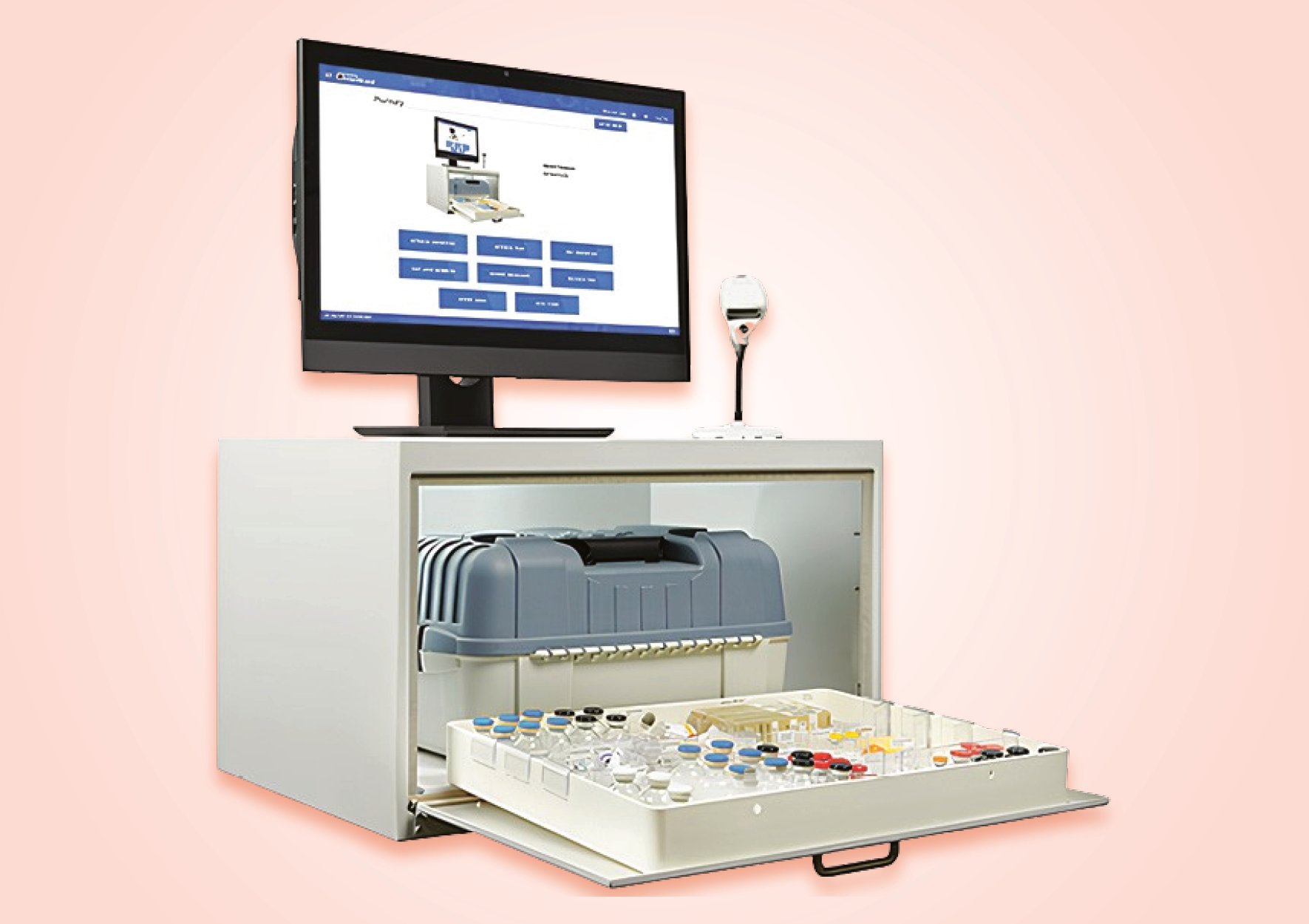- Show Menu
- Contact Us
- FAQs
- Reader Service
- Survey Data
- Survey Winners
- Testimonials
- Upcoming Events
- Webinars
- White Papers
Product Spotlight PharmPro Inc’s ePharmPro
Roxborough Memorial Hospital, part of Solis Healthcare, is a 137-bed community and teaching hospital that has been serving the medical and healthcare needs of the Roxborough, Manayunk, East Falls and other neighboring sections of northwest Philadelphia since 1890.
Our pharmacy staffs three to four pharmacists and three techs during the day shift, and one pharmacist and two techs during the evening shift. The pharmacy hours of operation were 6:30AM to 11:00PM daily and the hospital sought to expand pharmacy coverage to a 24/7 operation to allow for prospective pharmacist reviews on all medication orders.
We first considered adding additional staff to solve this problem. However, in-house staffing would have required a minimum of two alternating 7-on/7-off overnight pharmacists and possibly additional technicians; costs our overnight volume of medication orders and clinical inquiries did not justify. Instead, we chose to implement PharmPro Inc’s telepharmacy solution, ePharmPro. By instituting telepharmacy and adjusting our in-house staffing model, we were able to achieve 24/7 pharmacy coverage at a cost comparable to adding one full-time, overnight pharmacist.
Choosing a Telepharmacy Provider
There were several factors that contributed to our decision to select ePharmPro. For our service, PharmPro assigned two primary pharmacists to provide coverage on alternating weeks with a regular team of secondary pharmacists to support them. This model helps develop familiarity and augments the working relationship between hospital staff and the remote pharmacists. Their consistent staffing model also makes it easier to provide additional training for quality control or performance improvement initiatives.
We also felt ePharmPro’s phone service met our needs. Our hospital staff dials the same internal extension for pharmacy and the calls are automatically routed directly to the remote pharmacist on duty. We preferred this approach to a call-center system with a large number of pharmacists and technicians.
The caliber of pharmacists employed by PharmPro was also attractive. Each pharmacist at PharmPro has a large network of highly experienced colleagues readily available for clinical support. Lastly, PharmPro’s emphasis on clinical interventions and not just order processing was a plus. We are currently using ePharmPro for after-hours coverage only, however, our agreement allows for peak time coverage should the need arise.
The Off-site Model
Under the new system, physician orders are scanned into Pyxis Connect. The PharmPro pharmacist retrieves the orders from the queue, performs clinical reviews and enters the orders into the patient’s medication profile. Most orders are turned around in about 20 minutes. All orders processed by ePharmPro are entered into our PIS in real time, and each order processed by a pharmacist is printed and double-checked by a second pharmacist for safety and quality assurance. We receive monthly reports itemizing all orders processed, drug information consults provided and clinical interventions performed.
To address the possibility of system downtime we configured remote access to a designated pharmacy terminal as a backup to the VPN connection, and a list of alternate phone numbers is also available.
Implementing ePharmPro was relatively simple, as there were no interface issues. PharmPro Inc also sent a number of pharmacists for on-site training at our facility. While the standard implementation period is 90 days, we were able to begin services after just two months.
Increased Efficiency
The ePharmPro system has been in place since September 2008, and has virtually eliminated time spent by the morning pharmacist doing retrospective reviews on a backlog of overnight orders, thereby opening time for other activities. Any issues not fully resolved during the night are communicated to the hospital pharmacist by electronic documentation in Pyxis Connect. The evening pharmacy staff is now able to clock out in a timely fashion, improving their job satisfaction and also reducing incidental overtime. Outstanding issues from the evening can now be handed off to ePharmPro for follow-up instead of sitting until morning.
Temporary medication orders have been reassigned from nursing back to pharmacy. This allowed the already short-handed nursing staff to focus on patient care and returned review and verification of medication orders to a pharmacist. Furthermore, the clinical staff appreciates the availability of a pharmacist for drug information consultations throughout the night.
Recommendations
Remote pharmacy services are an excellent solution for hospitals looking to expand to 24/7 coverage. To conduct a cost/benefit analysis, consider the cost of staffing an overnight shift, as well as the anticipated volume of orders, including new orders, discontinuations, change in dose, phone calls, clinical interventions, therapeutic substitutions, pharmacokinetic consultations, etc. Ultimately, the support of the nursing and pharmacy staff is essential to the success of a telepharmacy system.
Jimmy Kim, PharmD, is the director of pharmacy at Roxborough Memorial Hospital in Philadelphia, Pennsylvania.
Like what you've read? Please log in or create a free account to enjoy more of what www.pppmag.com has to offer.








